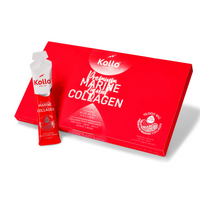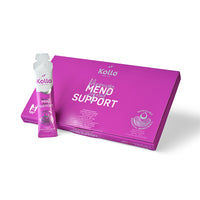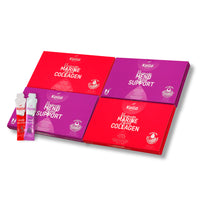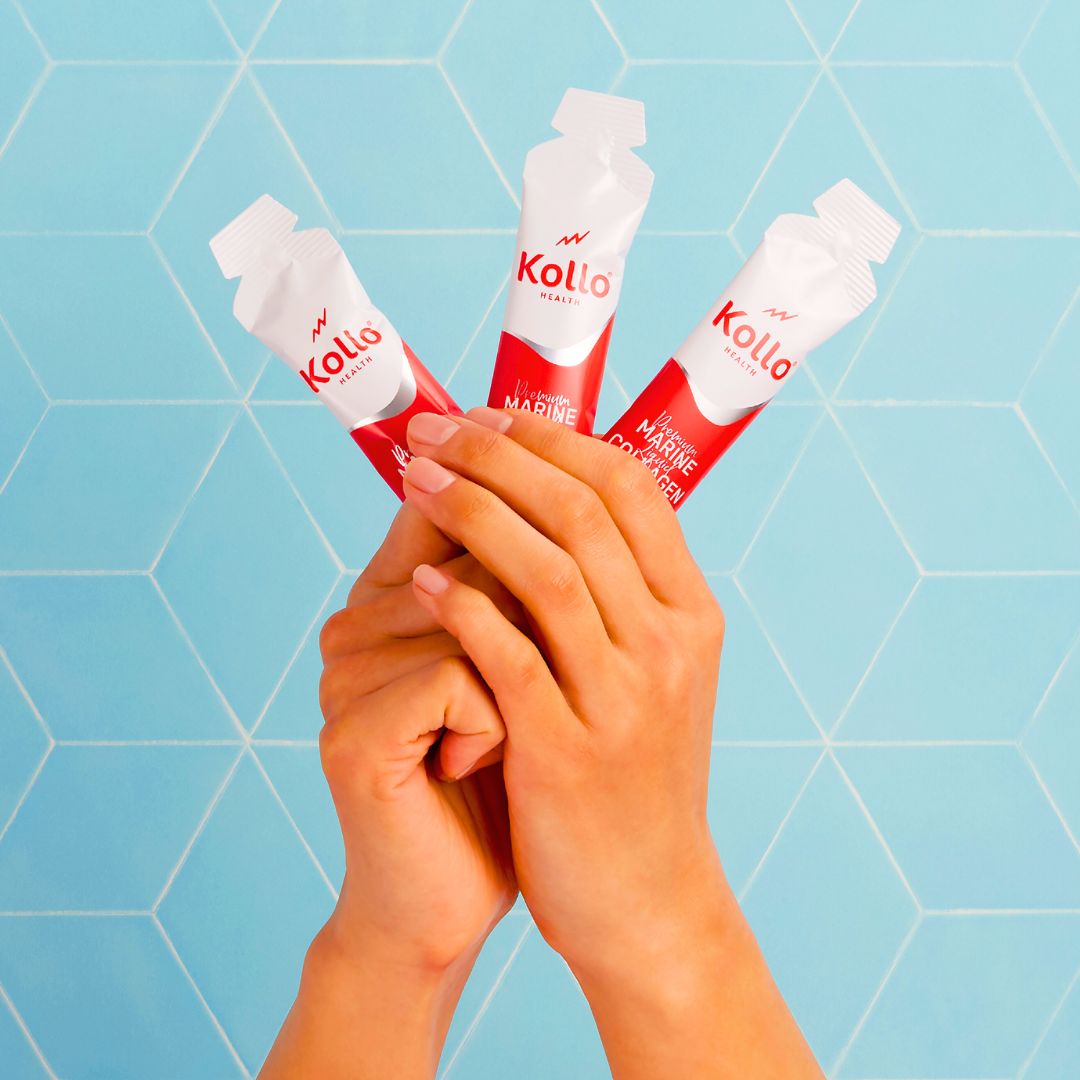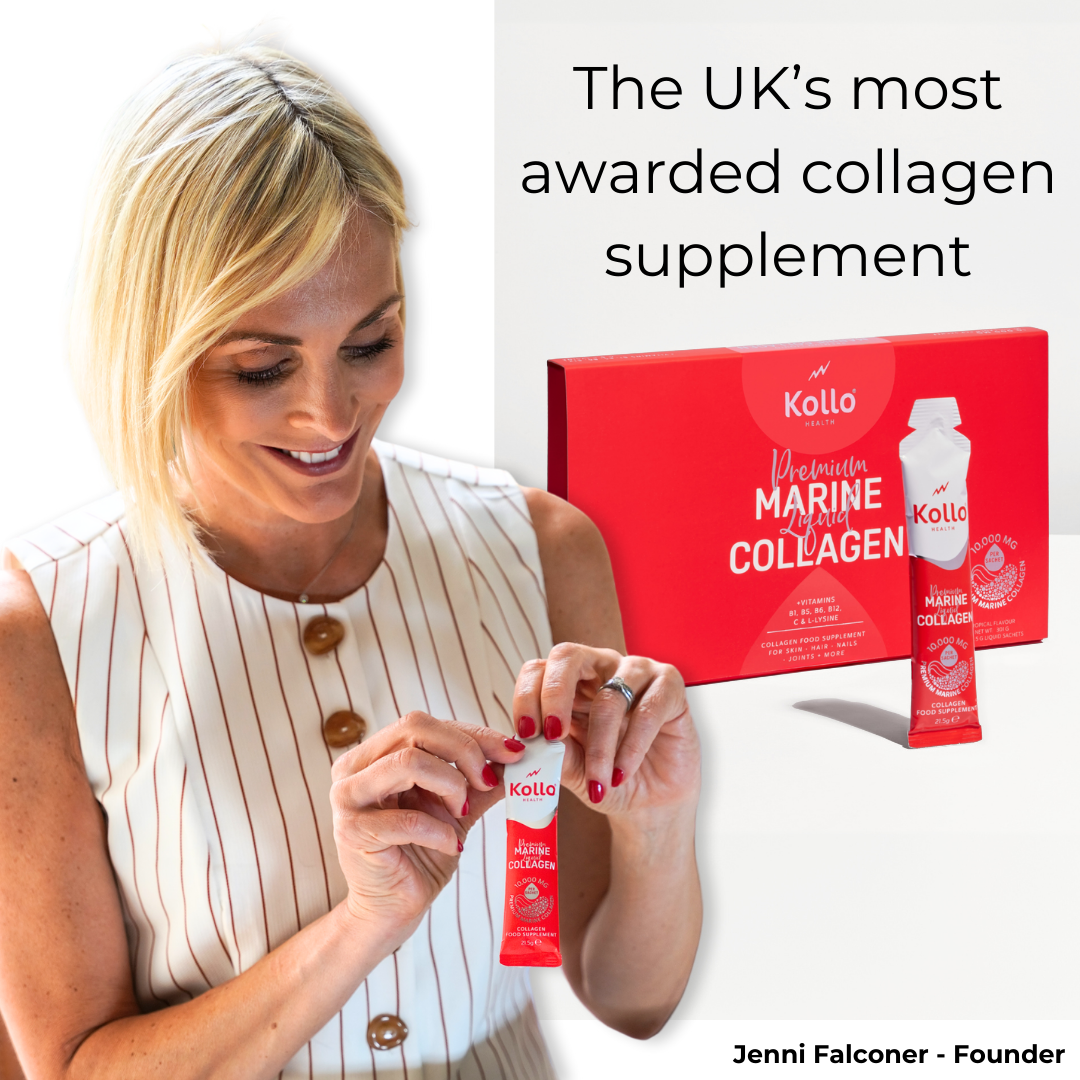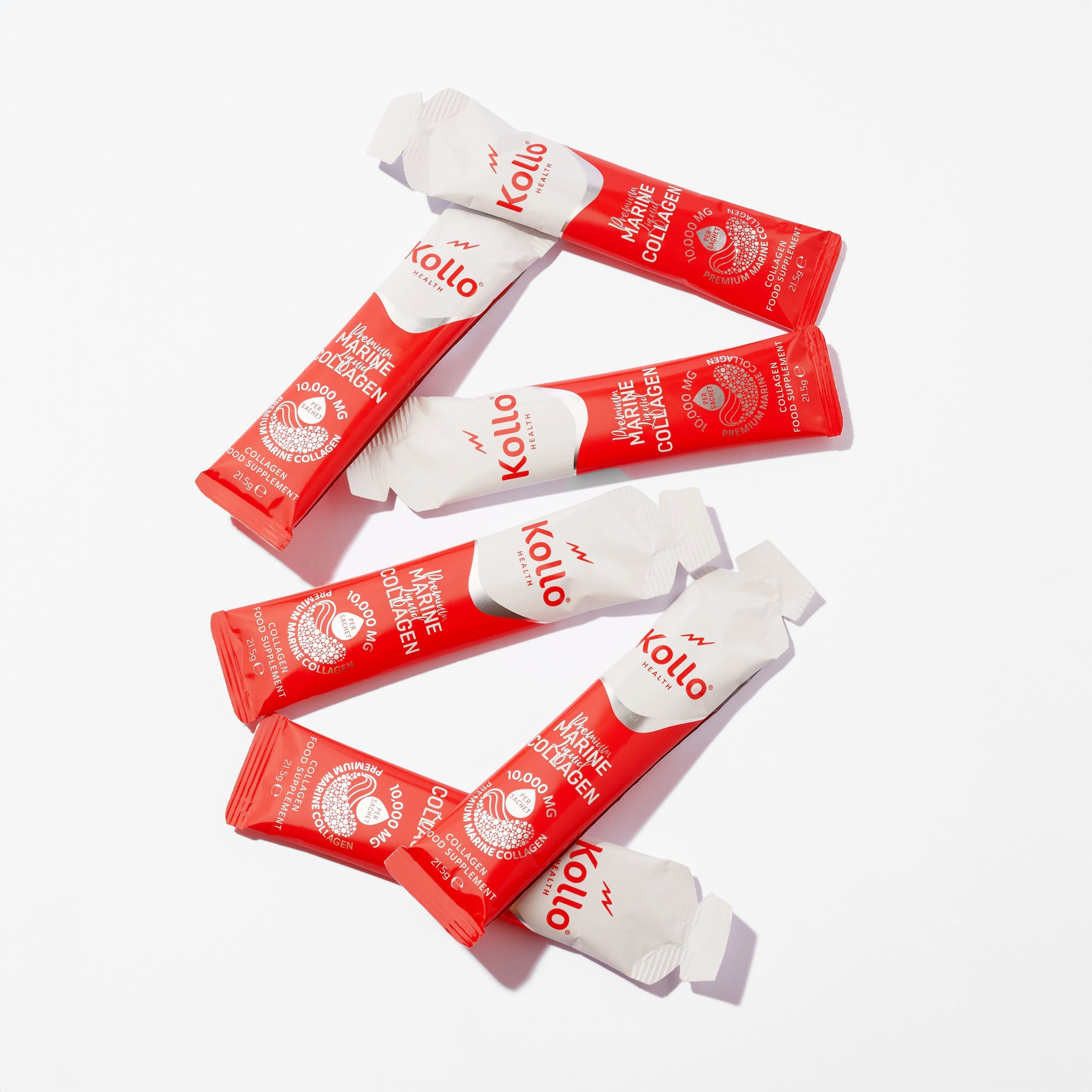Should I drink collagen to help with menopause-related teeth problems?

Many women entering perimenopause and menopause now were born in the 1970s. Unfortunately, this was not a great decade for dental care. Fillings were overused and dental education was not what it is now. And women who grew up in this time are now facing another challenge to their teeth: menopause. The hormonal changes during perimenopause alter the environment of the mouth. Many women find that they need more fillings or become more prone to gum disease during this time. But should you drink collagen to try and help alleviate these symptoms?
We explore that question in this post. We will also look at some other things you can do to help protect your teeth and gums during menopause.
Why are women encouraged to drink collagen during menopause?
Falling oestrogen levels during menopause can be devastating to collagen. The levels of collagen in the body plummet, and the ability speed at which new collagen is created deteriorates. This causes all sorts of issues around the body because collagen is such an important protein. It provides strength and structure to connective tissues everywhere. This includes:
-
Gums
-
Skin
-
Bones
-
Joints
-
Arteries
-
Intestines
-
Muscle
Many of the early signs of ageing are a result of collagen decline. This is why menopause can cause women to rapidly look and feel older. But it doesn’t have to be this way. There are many steps we can take to fight back against collagen decline. We encourage you to drink collagen supplements and follow a pro-collagen lifestyle – more on that later.
What is the role of collagen in teeth?
You may believe your teeth are basically just bone. Collagen makes up more than 90% of the overall content of bone tissue. So it would be great if we could drink collagen to restore our teeth the same as we can for bones. But teeth are actually different to bone:
-
Bones: Living tissues that remodel and regenerate over time. Largely consist of collagen and calcium.
-
Teeth: Not living tissues. No ability to regenerate or repair themselves. Composed of dentin, cementum, pulp and enamel.
So does collagen play a role in teeth at all? Well, the dentin, enamel and cementum have no collagen content. But deeper within the tooth, the central pulp consists of nerve tissues that actually contain several types of collagen.
Tooth pulp creates dentin, nourishes the dentin layer and detects changes in pressure or temperature. If you drink collagen to boost your collagen levels, you could promote good health in your tooth pulp. In turn, this will help with overall tooth function.
Are there any other benefits to drinking collagen for teeth?
Your teeth are not bones, but there is bone in your oral cavity. Teeth are anchored into your jawbone. That bone contains sockets that the teeth are embedded in and it surrounds the roots. Collagen drinks enhance bone density over time, so they could help encourage strong tooth anchoring. This would amount to stronger teeth that are less likely to shift in their sockets and cause discomfort during menopause.
Can I drink collagen to help my gums?
Another key aspect of oral health is preventing gum disease. The hormonal shifts of menopause can make women more vulnerable to gum disease. There are many reports of bleeding, swollen gums from menopausal women. This can be distressing, cause discomfort and lead to more serious issues that threaten teeth and can cause infection.
The gums are made up of gingival fibres. These are connective tissues that are mostly composed of Type I collagen. Thus, drinking collagen could help maintain the health of your gum tissue by replenishing its collagen levels. In the gums, collagen acts like a scaffold that provides structure to the tissues. This ensures good blood flow and keeps everything well-nourished. It also encourages efficient healing when needed. If those collagen levels drop, gums become less resilient and more prone to damage and disease.
Has the collagen impact on gum health ever been researched?
Yes, there is a study from 2012 that explored this very issue. Researchers found that supplements containing animal collagen can help enhance gum integrity. In other words, they promote thicker gums around the teeth. More than half of the participants in the study experienced complete coverage of exposed tooth root surfaces.
The exact reasoning behind this effect was not researched in this study. But the fact is that drinking collagen does help with gum health. And this is very important for women during menopause who experience issues with their teeth and gums.
What else helps to combat menopause-related teeth problems?
Good dental and oral care is the order of the day. Saliva production can drop with falling oestrogen levels, weakening our first line of defence against bacteria. This is why it’s important to ramp up your teeth cleaning efforts. The evening clean is most crucial and fluoride is your most powerful weapon.
A high-fluoride toothpaste can be really helpful. Experts recommend using an electric toothbrush with a sensitive setting. And things like inter-dental brushes and mouthwash become more important than ever during this time.
Moisturising your mouth
Dryness is a big problem during menopause and this extends to your mouth. A dry mouth can make a person want to drink more, and drinking anything other than water can damage your teeth and gums.
One solution to boost oral hydration levels is to eat more high-moisture vegetables. Broccoli and celery are good options for this because they also require a lot of chewing. This can stimulate saliva flow and moisturise the mouth. There are also artificial saliva sprays available, and you could chew sugar-free gum to help.
Protecting the jaw
With less collagen, your jaw joints can become unstable. This can gradually lead to tooth loss along with difficulty chewing, restricted opening and headaches. When you drink collagen, it can help with collagen levels in bone and help protect the jaw joints.
Beyond this, you can massage the jaw joints to help ease pain. Other supplements like glucosamine may also be helpful. And, when pain becomes an issue, NSAIDs like ibuprofen are a good painkiller to turn to.
Kollo: the best way to drink collagen
Kollo is a liquid collagen supplement that contains premium-grade marine collagen. This means collagen that originates from the skin and scales of fish. It has extremely high purity and integrity – we use Naticol collagen. Bioavailability is an important consideration for collagen supplements. Kollo contains collagen peptides for easy absorption and the liquid suspension makes it even easier to digest. Furthermore, we add B vitamins, vitamin C and l-lysine to enhance your collagen production even more.
Some of the highlights of Kollo include:
-
Winning multiple awards since 2020
-
Being featured on ITV This Morning and Women’s Running magazine
-
‘Informed Sport’ certification
-
‘Amazon’s Choice’ status
-
Over 2,000 5-star reviews from verified buyers
-
It’s sugar-free, so it won’t harm your teeth!
We encourage you to explore your options when considering the right collagen drink for you. Our customer reviews are a good place to start. You will be able to read the stories and thoughts of hundreds of men and women. Many of our customers are women experiencing perimenopause and menopause. Their stories are really inspiring to us and we hope they will be for you to.
Going the extra mile
We care about your health, whether you are in menopause or at any other stage of life. We believe you should drink collagen as part of your healthcare routine, but we advocate a complete pro-collagen lifestyle as well. This means encouraging good behaviours and removing harmful ones.
What you should do:
-
Drink collagen from Kollo
-
Eat a pro-collagen diet
-
Get plenty of exercise
-
Drink lots of water
-
Sleep for 7-8 hours per night
What you should avoid:
-
Smoking
-
Air pollution
-
Excessive sun exposure
-
Too much sugar and refined carbohydrates
-
Stress
This is a basic framework to follow for a pro-collagen lifestyle. Promoting your collagen health will have far-reaching benefits for your health. This is true for women in menopause but also for men and women at any stage of life. Collagen is so fundamental to the health of our bodies and minds so we should all be protecting it.
Does menopause-related dental health improve post-menopause?
Unfortunately, the post-menopausal phase may not ease your oral health troubles. Tooth loss is a common issue reported by post-menopausal women. What’s more, issues relating to loss of bone density can cause continuing issues with pain in the jaw.
Thus, when you enter perimenopause, the advice in this post may continue being relevant for the rest of your life. Don’t despair though. Leading a pro-collagen lifestyle becomes second nature after a while. And the added steps you take for dental care will quickly become a normal part of your daily routines.
Learn more about Kollo
The main takeaway from this post is that you should drink collagen to help with menopause-related teeth problems. It will also offer a range of other benefits for your health. You can learn more about what Kollo does by browsing our blog.
If you still have questions, please don’t hesitate to get in touch. We would love to hear from you and our team will be happy to answer any queries you may have.
